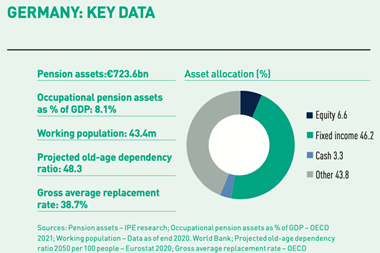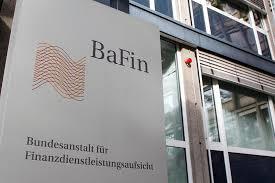Investors are considering likely the possibility that Russia will default on its debt with consequences that may vary according to exposures as the sanctions bite into the country’s economy and financial systems.
“Currently the probability of a default of the Russian sovereign is very high, [it is] is estimated to be above 80% in Q1 or Q2,” Luc D’hooge, head of emerging markets debt at Vontobel told IPE.
“A debt default by Russia seems quite likely…the foreign currency debt is particularly vulnerable because many of Russia’s foreign currency reserves have been frozen and the rouble has collapsed,” Paul Jackson, global head of asset allocation at Invesco, told IPE.
Last week rating agency Fitch downgraded Russia’s long-term foreign currency issuer default rating (IDR) to ‘C’ from ‘B’, considering a default imminent.
As reasons for the downgrade, Fitch mentioned the possibility that Russia denominates sovereign debt payments held in foreign currency into local currency for creditors in specified countries, the country’s central bank restricting the transfer of local-currency debt coupons to non-residents, and sanctions that could limit trade in energy leading to at least selective non-payment of sovereign debt obligations, it said.
The managing director of the International Monetary Fund, Kristalina Georgieva, said during a recent roundtable that the Russian default “is no more an improbable event”, adding that “we have to see what is the prospect for allowing service of debt obligation…because in this case, it’s not that Russian doesn’t have money. Russia cannot use this money,” she said.
The implications for investors will depend upon their exposure to Russian debt, Invesco’s Jackson said, adding that “those focused entirely on such debt will feel a lot of pain but the average investor will have had limited exposure.”
Allianz has a $2.61bn (€2.36bn) exposure to Russian sovereign bonds, the largest among European investors, according to data from Refinitiv released by the NGO Urgewald.
Allianz has 0.3% of insured members’ funds invested in Russia, a large part in bonds, a spokesperson told IPE.
The insurer has stopped new businesses in Russia but it has existing commitments that will reduce over time in parallel with investments, the spokesperson said.
Unintended consequences
Emerging market sovereign debt indices had a limited exposure to Russia, while global index weightings were even lower, 0.3% in Bloomberg’s US dollar denominated global index, for example, Jackson said, adding that investors are now well aware that such assets have limited value.
But problems could come from knock-on effects on investors suffering large impacts.
“For example, if an investor starts to have problems because of their Russian exposures, they may then default on obligations to others within Western financial systems and this could reverberate throughout the system,” he said.
These sort of “unintended consequences” are one reason why central banks may want to be less aggressive in their tightening than otherwise, he added.
The macroeconomic backdrop of Russia was very strong before the start of the war in Ukraine, but the conflict and subsequent sanctions changed the picture, and “with no access to most liquid reserves the capacity to pay decreased,” D’hooge said.
Russia’s willingness to pay its debt may shrink very quickly combined with not being able to issue new debt due to the sanctions, but for now “they still seem keen to pay,” he said.
“Russia’s general licence from the [Office of Foreign Assets Control] OFAC to pay ends on 25 May and it may be extended. We guess Russia may want to wait till expiration of this licence before stopping to service their debt, because then Russia cannot be blamed for not paying,” Vontobel’s D’hooge added.
The US has prohibited buying or selling debt or equity of Russian financial institutions, authorising until 25 May incident and necessary transactions for debt or equity issued prior to 24 February, the day of the Ukraine invasion, with VEB, VTB, Otkritie, Sovcombank, and Sberbank and their subsidiaries.
The US Treasury in February sanctioned the Corporation Bank for Development and Foreign Economic Affairs Vnesheconombank (VEB) and Promsvyazbank Public Joint Stock Company (PSB), along with 42 of their subsidiaries, state-owned institutions that play specific roles to support Russia’s defence capability and its economy, it said.
Spillover effects
For D’hooge the spillover effects on allocations caused by the default should be limited, although the war and sanctions have negative effects on growth in Eastern Europe and increase inflation.
“For that reason, many investors have already reduced their allocation to CIS [Commonwealth of Independent States] countries and Eastern Europe by now. This resulted in a severe re-pricing, which makes many bonds attractive from a valuation perspective and we would rather expect some kind of reversal of this move,” he added.
A spillover effect for European investors may mean higher risk premiums being applied to some assets, especially those linked to countries that pose geopolitical or economic risks, Jackson said.
“Hence, some emerging market assets may now be less in demand than previously, as well as peripheral eurozone debt. However, not all emerging market assets will be shunned, as the rise in commodity prices could increase the appeal of producers of raw materials, many of whom are in emerging economies,” he said.
On the plus side, so-called “safe-havens” may now seem more appealing and the list could include US assets, gold and the Japanese yen.
“Attitudes to China could also undergo a change, since it will not be negatively impacted in the same way as the European economy,” Jackson said.
The latest digital edition of IPE’s magazine in now available














